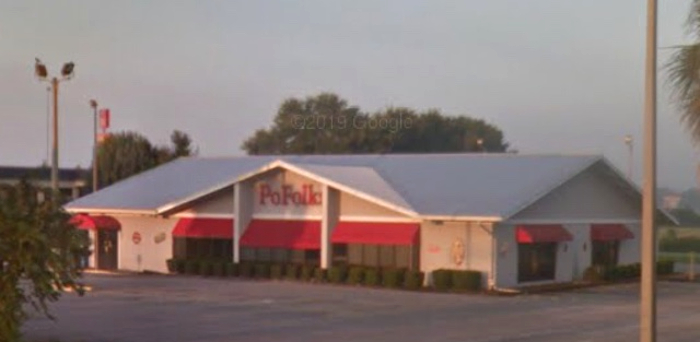
Having what it takes to become a star in the world of country music doesn’t necessarily mean you have what it takes to succeed in the food and restaurant world. Here are the tales of five country music stars who found that out the hard way.
Bill Anderson and Po Folks Restaurant
When country singer Whisperin’ Bill Anderson visited a PoFolks restaurant in 1981, he may have had lawsuits on his mind. I mean, the restaurant chain had swiped the title of the biggest hit song of his career and the name of his road band. But the owner’s hospitality (and all the fried food) weakened Anderson’s stance. Not only had he softened, but by the end of the meal, he’d agreed to become PoFolks’ national spokesman. As Anderson did PoFolks commercials and even became a partner in several franchises, the chain’s profits grew. He even convinced his pal Conway Twitty (more on him in just a bit) to become an investor. At its height, individual PoFolks restaurants were grossing $2 million a year. But careless over expansion took its toll, and by 1989, PoFolks was headed for the PoHouse. The chain rebounded in 1991, but without Bill Anderson involved. Today, a handful of restaurants remain, but mostly in Florida.
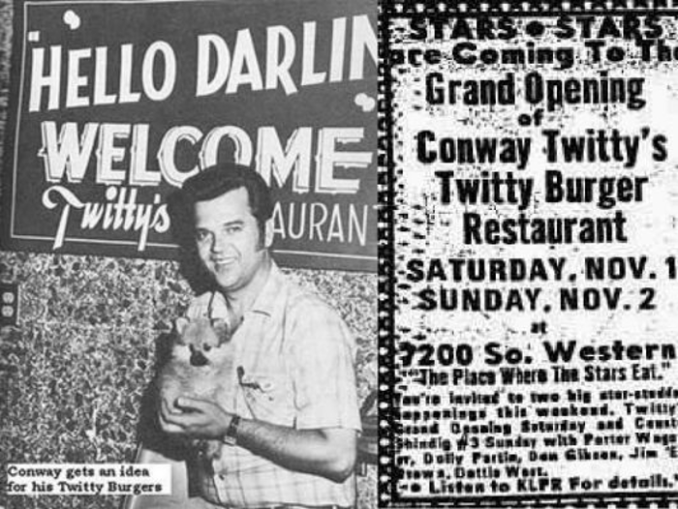
Conway Twitty and His Twitty Burgers
Conway Twitty had a favorite hamburger. It was a hamburger that featured a patty topped with cheese, two slices of bacon, and a deep-fried, graham cracker-crusted slice of pineapple. And he dreamed that one day there would be a restaurant chain that sold this burger he loved. When no takers could be found, Twitty did what he considered to be the next best thing. He decided to open his own chain of restaurants that he would call Twitty Burgers. This was bad idea number one. In 1969, Conway persuaded some of his friends to invest $100,000 in his Twitty Burger idea, but the Twitty Burger never found an audience, and mismanagement led to the chain’s quick demise.
When Conway decided to repay his investors, he deducted the $100,000 as a business expense on his tax returns. This was bad idea number two. The IRS soon caught on, and Twitty found himself in court. Lucky for him, he was assigned to Judge Leo Irwin who was an amateur singer with a soft spot for country music. Not only did Irwin allow Twitty to keep the money, but after he read the verdict, he sang a song he wrote entitled “Ode to Conway Twitty.”
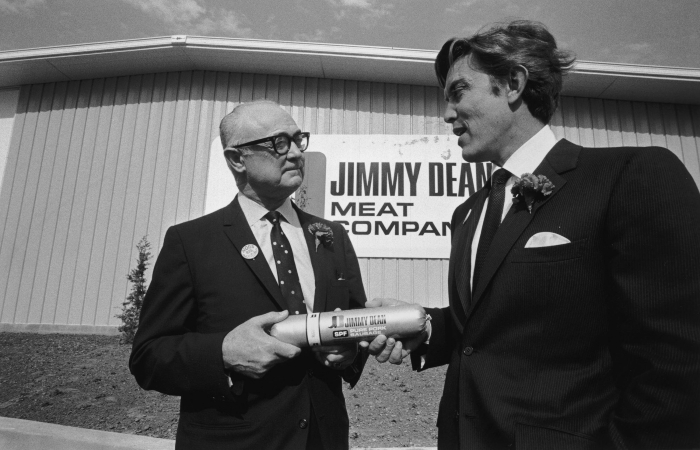
Jimmy Dean’s Sausage
Jimmy Dean Sausage was a hit from its debut in 1969 because Jimmy wanted to take a different approach to make fine pork meat products. While most manufacturers at the time made sausage from old sows and chilled the pork before packing it, the country music star had a different vision. Jimmy Dean decided to use only top hogs and package the product while it was still warm. This method resulted in a tender and juicy product that went on to gross nearly $60 million a year.
While running the company with his brother, Jimmy pitched his product on TV, singing of sausage “from the whole hog, not just the leavin’s.” Amazingly, those leavin’s didn’t go to waste, either. The inner skins were donated to burn treatment centers, while the outer skins were fashioned into coats for Dean’s spin-off company, Pigskin. Other spare parts were turned into cat food. But trouble was on the horizon in hog heaven.
Like other tales on this list, the company expanded too fast, and backwoods accounting practices and manufacturing equipment couldn’t keep up. When the stress started taking a toll on Jimmy Dean’s health, he sold the company in 1984. Despite the change in ownership, Jimmy still stood by his product and kept his job as the face of the product for another 20 years.
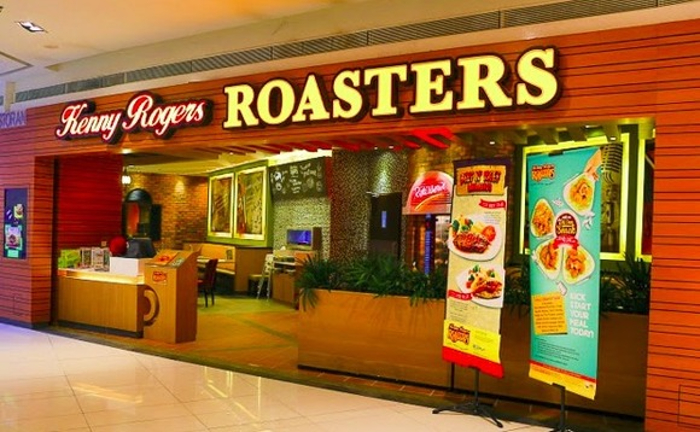
Kenny Rogers Roasters
If I had to guess, I’d say most of you reading this remember the classic Seinfeld episode called “The Chicken Roaster”. It was the one where Newman gets Kramer hooked on chicken from Kenny Rogers Roasters. “The man makes a pretty strong bird,” Newman said, and that was true enough.
Kenny Roger’s Roasters was founded in 1991 by Rogers himself and former Kentucky Fried Chicken owner John Brown, Jr. The Roasters’ menu featured wood-fired rotisserie chicken instead of the fried chicken that most all other chicken chains sold. In just four years, the chain had grown to 350 restaurants worldwide in 1995.
While Kenny Rogers was a fine spokesman for his product, he didn’t know his brand. In 1997, on an episode of Late Night with Conan O’ Brien, Rogers failed a blind taste test, choosing chicken from the NBC cafeteria instead of his own. That may have been a sign. The company filed for bankruptcy a year later, meaning that Kenny didn’t know when to hold ’em and when to fold ’em.
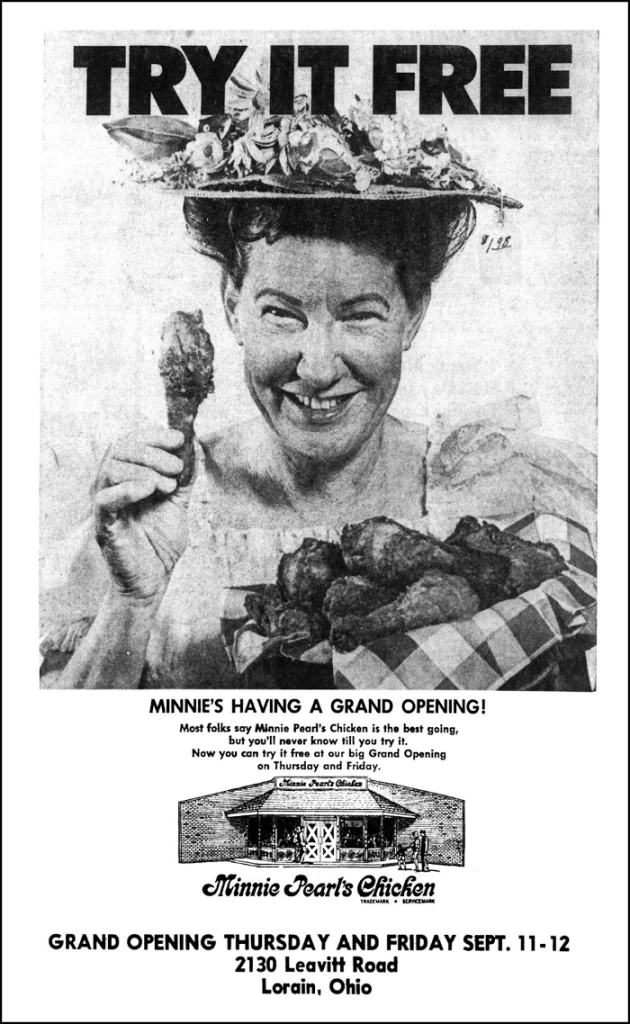
Minnie Pearl’s Fried Chicken
In 1967 down in the Music City of Nashville, attorney John Jay Hooker convinced Grand Ole Opry star and comedienne Minnie Pearl that she could sell more drumsticks and wings than the popular king of chicken, Colonel Sanders. After all, Minnie Pearl seemed like exactly the sort of lady who’d have a good family recipe for fried chicken. Unfortunately, she didn’t. But that didn’t stop Hooker from selling franchises anyway.
Within just a few months, plans were in place for 300 restaurants and public stock was suddenly worth $64 million. Never mind the fact that only five restaurants were actually operating and that no two franchises used the same fried chicken recipe. Regular customer complaints, combined with an SEC investigation into the company’s accounting practices, meant that it wasn’t long before the restaurants began losing money quickly, and a lot of it. By 1971, the last bird had been fried, and Hooker spent decades living down the disaster. Sadly, Minnie Pearl continued to apologize to her fans right up until her death in 1996.

Be the first to comment